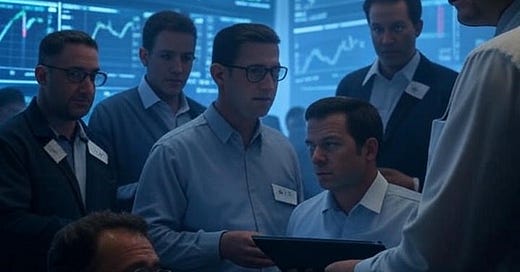JBS’s NYSE Listing: A Milestone with Short-Seller Risks Looming
On June 13, 2025, JBS, the global meatpacking giant, made its highly anticipated debut on the New York Stock Exchange (NYSE), marking a historic dual listing alongside Brazil’s B3 exchange. The move has been hailed as a strategic win for the company, but it comes with a shadow of risk—particularly from major hedge funds eyeing JBS’s environmental and governance vulnerabilities. Here’s a breakdown of the listing’s outcome, how it met expectations, the unmet hopes for valuation alignment with Tyson Foods, and why big hedge funds could drive short-selling pressure.
A Successful but Cautious Debut
JBS’s NYSE listing was a landmark moment, following SEC approval in April 2025 and shareholder backing on May 23, despite some resistance. The stock saw a modest start, though reports noted a slight dip amid concerns over the company’s environmental, social, and governance (ESG) track record. For the Batista family, who control roughly 42% of JBS, the listing was a financial boon, with their wealth reportedly swelling by ~$2 billion as shares climbed from ~$10 to ~$14. Wall Street analysts, including Citi and BTG, celebrated the listing as a gateway to a broader investor pool, potentially aligning JBS’s valuation with competitors like Tyson Foods. Yet, beneath the surface, risks are brewing—especially from hedge funds attuned to JBS’s sustainability challenges.
Meeting Expectations
JBS had clear goals for its NYSE listing, and it largely delivered:
• Access to Capital: The listing opens doors to cheaper financing and a wider investor base, critical for JBS’s growth and diversification plans.
• Global Visibility: With half its revenue from the U.S., JBS’s dual listing strengthens its foothold in a key market, boosting its global brand.
• Voting Power Secured: The restructuring, granting the Batista brothers ~85% voting control, passed despite governance concerns, cementing their influence.
These wins position JBS for long-term growth, but they also spotlight vulnerabilities that could attract short sellers.
Frustration Over Valuation Misalignment
A key expectation for JBS’s NYSE listing was that it would close the valuation gap with Tyson Foods, aligning JBS’s revenue multiple with Tyson’s higher benchmark, which hovers around 0.5x to 0.6x sales compared to JBS’s pre-listing ~0.3x. Investors anticipated a share price surge to ~$18-$20, reflecting a revenue multiple adjustment to match Tyson’s, given JBS’s $78 billion in 2024 revenue. However, the stock’s modest debut and subsequent ESG-driven dips left it languishing below $15, far from the hoped-for boost. This shortfall has frustrated analysts and shareholders who saw the listing as JBS’s chance to command a premium valuation, with the persistent discount fueling irritation over unfulfilled promises and exposing the stock to further scrutiny.
The Short-Seller Threat from Hedge Funds
While JBS basks in its listing success, major hedge funds are likely watching closely, ready to capitalize on the company’s ESG and ethical weaknesses. Here’s why short-selling risks are significant:
1. ESG Controversies as a Magnet for Shorts
JBS’s history is riddled with environmental and ethical scandals, from deforestation in the Amazon to price-fixing settlements and bribery allegations. These issues have drawn fire from environmental groups and even U.S. senators, who warned that JBS’s listing poses risks to investors. Hedge funds, known for targeting companies with sustainability red flags, could see JBS as a prime candidate for shorting, especially as global investors prioritize ESG compliance.
2. Governance Concerns Fuel Skepticism
The Batista family’s tight grip on voting power has raised eyebrows, with critics arguing it undermines shareholder rights. Big hedge funds often short stocks of companies with governance issues, betting that concentrated control leads to mismanagement or market distrust. JBS’s restructured voting system could be a lightning rod for such strategies.
3. Litigation and Market Dynamics
Ongoing legal battles, like the price-fixing lawsuit from McDonald’s, add fuel to the fire. Hedge funds may amplify negative sentiment by betting against JBS’s stock, particularly if damaging reports or rulings emerge. Post-listing, JBS’s potential inclusion in major indices could spike volatility, creating opportunities for short sellers to strike. Research shows short sellers thrive on firms with perceived overvaluation or misconduct—JBS fits the profile.
4. Hedge Fund Sophistication
Unlike retail short sellers, large hedge funds have the resources to conduct deep research and coordinate campaigns. Firms aware of JBS’s sustainability impacts could publish critical reports or leverage media to drive down stock prices, profiting from carefully timed short positions. While no specific hedge fund campaigns against JBS were reported, the company’s high-profile listing makes it a likely target.
What’s Next for JBS?
JBS’s NYSE listing is a bold step toward global dominance, but it’s not without peril. The company has met its goals of accessing capital and boosting visibility, yet its failure to achieve a Tyson-like valuation and its ESG and governance issues make it vulnerable to short-selling pressure from sophisticated hedge funds. Investors should keep a close eye on short interest, negative reports, and any ESG-related developments that could sway market sentiment.
As JBS navigates this new chapter, its ability to address sustainability concerns and deliver on valuation expectations will be critical. For now, the meatpacking giant is in the spotlight—both for its achievements and the risks that could derail its momentum.




